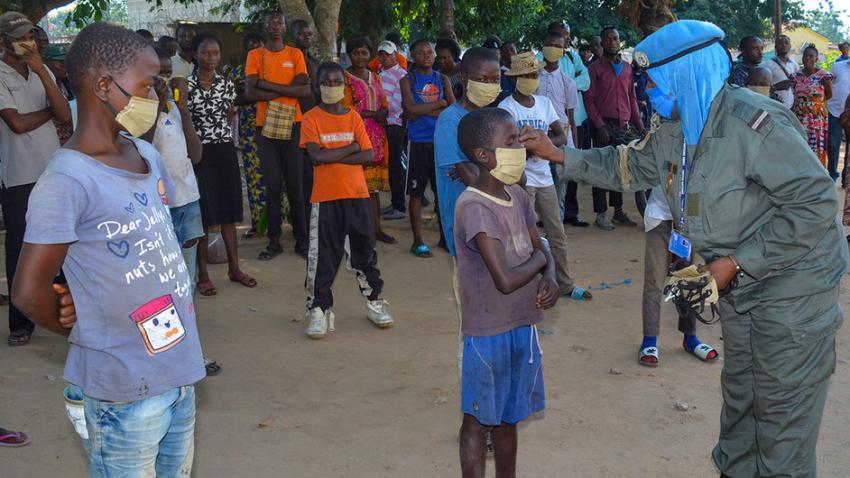The United Nations vision for a sustainable future for all “will depend on our policy choices today, and our resolve to act together in solidarity”, a senior UN official told delegates on Monday at a meeting to discuss post-pandemic recovery.
Mher Margaryan, the vice-president of the UN Economic and Social Council (ECOSOC), was speaking at the Integration Segment of a day-long meeting on the eve of the High-Level Political Forum (HLPF), the annual stock-take of the world’s progress towards achieving the Sustainable Development Goals (SDGs) of the 2030 Agenda for Sustainable Development, the UN’s blueprint for a better future, for people and planet. The segment aims to help prepare the thematic reviews of the Forum, which takes place between 7 and 16 July.Echoing comments made in the latest Secretary-General’s report on progress towards achieving the SDGs – as the basis of HLPF discussions – the ECOSOC deputy chief underlined the importance of collective action to respond effectively to a crisis whose implications run beyond the health sector to impact each of the 17 Goals.
The SDGs, he said, are more important than ever, to “guide our recovery efforts and make our countries and communities more inclusive, equal and resilient”.
Mr. Margaryan named six subject areas, identified in the 2019 Global Sustainable Development Report, as a basis for discussion on achieving the 2030 Agenda: human well-being and capabilities; sustainable and just economies; food systems and nutrition patterns; energy decarbonization with universal access; urban and peri-urban development; and global environmental commons.
Addressing the event the Under-Secretary-General for Economic and Social Affairs, Liu Zhenmin, underscored the importance of protecting people. “To build back better we need to rethink our social protection and economic systems, and put people at the centre of our response”, said Mr. Liu. “Going forward, our priority must be protecting our progress on the SDGs and putting the world back on track to achieve the 2030 Agenda, as well as the Paris Agreement on Climate Change.”
In a video message released on Monday, Mr. Guterres warned that the COVID-19 pandemic is laying bare inequalities, such as inadequate health care and gaps in social protection; reversing progress on poverty and hunger; and particularly affecting the vulnerable, such as marginalized groups, women, and children.
The UN, said Mr. Guterres, has called for massive global support for vulnerable groups and countries. The Organization is supporting research into a “people’s vaccine”, that is affordable and accessible for all; and is leading efforts towards creating societies that are more resilient, inclusive and sustainable. “Returning to the frameworks and systems that gave rise to this crisis”, said Mr, Guterres, “is unthinkable”.
Source: UN News
About UN DESA
UN DESA Products
UN DESA Divisions
- Office of Intergovernmental Support and Coordination for Sustainable Development
- Division for Sustainable Development Goals
- Population Division
- Division for Public Institutions and Digital Government
- Financing for Sustainable Development Office
- Division for Inclusive Social Development
- Statistics Division
- Economic Analysis and Policy Division
- United Nations Forum on Forests
- Capacity Development Programme Management Office

